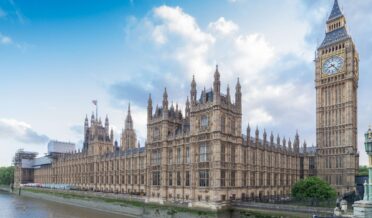Report/ Shahid Kharal
The formal end of a Parliament is called dissolution. Parliament is dissolved automatically 25 working days before a general election. The Fixed-Term Parliaments Act 2011 provides those general elections take place every five years on the first Thursday in May.
It also provides for early general elections if: either the House agrees a motion that there should be an early general election (which, if decided on a division, requires the support of two-thirds of the House’s total membership),
or, the House fails to agree a vote of confidence in a new Government within 14 days of a vote of no confidence in the Government holding office
Parliament is normally prorogued a few days before dissolution takes place. At prorogation, all parliamentary business ends but Parliament continues to exist until dissolution.
Dissolution triggers the start of the general election campaign. It also begins the period of ‘purdah’: the convention that the Government doesn’t make major policy announcements or enter significant commitments during the run up to an election.
When Parliament is dissolved, every seat in the House of Commons becomes vacant. You’re no longer an MP and mustn’t use this title. The House and IPSA issue detailed guidance before dissolution for MPs and their staff. The facilities that the House provides are no longer available to you from 5pm on the day of dissolution.

Parliamentary sovereignty is a principle of the UK constitution. It makes Parliament the supreme legal authority in the UK, which can create or end any law. Generally, the courts cannot overrule its legislation and no Parliament can pass laws that future Parliaments cannot change. Parliamentary sovereignty is the most important part of the UK constitution.
People often refer to the UK having an ‘unwritten constitution’ but that’s not strictly true. It may not exist in a single text, like in the USA or Germany, but large parts of it are written down, much of it in the laws passed in Parliament – known as statute law.
Therefore, the UK constitution is often described as ‘partly written and wholly uncodified’. (Uncodified means that the UK does not have a single, written constitution.)
Over the years, Parliament has passed laws that limit the application of parliamentary sovereignty. These laws reflect political developments both within and outside the UK.
The devolution of power to bodies like the Scottish Parliament and Senedd Cymru. The UK’s entry to the European Union in 1973 – and subsequent exit in 2020. The decision to establish a UK Supreme Court in 2009, which ends the House of Lords function as the UK’s final court of appeal. These developments do not fundamentally undermine the principle of parliamentary sovereignty, since, in theory at least, Parliament could repeal any of the laws implementing these changes.







